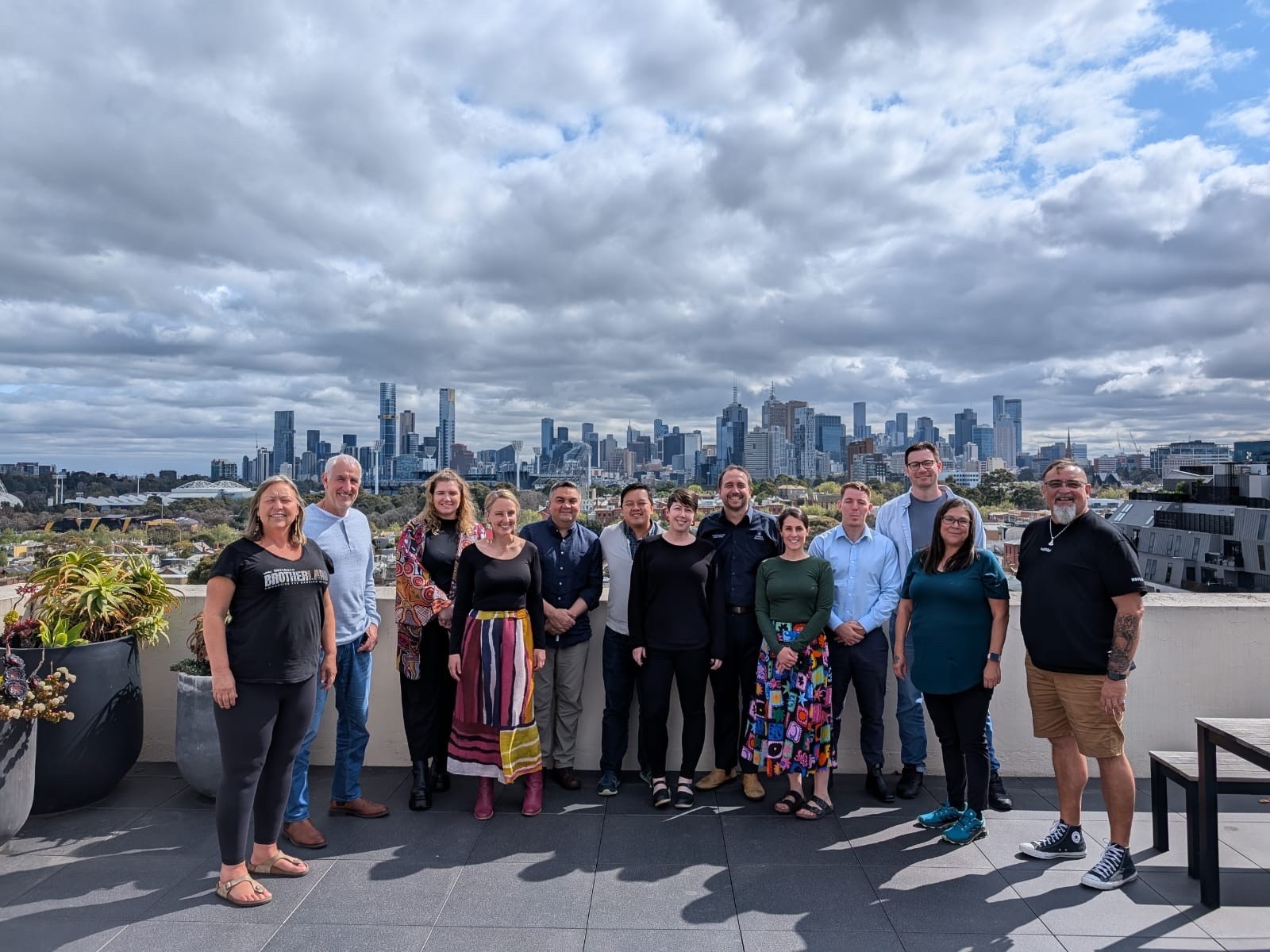Movember funds Flinders' led project
Credit: Movember Foundation

New community-driven strategies that support the social and emotional wellbeing of Indigenous men and boys across Australia will be evaluated for their power to address the alarming health inequities this group faces and to prioritise Indigenous focused programs and services.
The Flinders-led evaluation, funded by Movember, will run in close collaboration with rural and remote Aboriginal and Torres Strait Islander communities where rates of chronic disease and mortality, mental health issues and substance abuse issues are not decreasing as they have in other populations.
Professor James Smith“Chronic conditions such as diabetes, heart disease and mental health problems are disproportionately prevalent among Aboriginal and Torres Strait Islander men,” says Professor James Smith, Flinders University’s Deputy Dean of Rural and Remote Health – NT.
“We are grateful for Movember’s funding that will allow our highly experienced team to create a truly genuine and collaborative involvement with Indigenous men so we can support them to develop evidence-based solutions that address their needs and concerns in a tangible way.

“Some of the Indigenous-led activities that we want to evaluate include yarning circles and arts-based methods along with individual interviews, focus groups and case studies where we can test a broad range of evaluation methods, tools and analytical approaches,” says Professor Smith.
Flinders University has been awarded more than $2 million for the role of Movember’s Australian ‘Evaluation and Implementation Science Partner’ as part of a $59 million global investment to improve the health and wellbeing of Indigenous men around the world.
“We know that Indigenous culture, identity, and self-determination play a pivotal role in safeguarding Indigenous people from psychological distress. By nurturing social and emotional wellbeing, and by developing more programs and services rooted in Indigenous culture and grounded in holistic health principles, we can support healing and improved health outcomes for generations to come,” says Sonia Prevost-Derbecker, Movember Global Director Indigenous Programs.
Professor Smith says that the Flinders’ team is honoured to be walking alongside Movember and the funded projects to improve health outcomes for Indigenous outcomes.

“Over the next five years, our team will work closely with other organisations funded by Movember to develop meaningful ways in which to help men in Indigenous communities,” says Professor Smith.
“By partnering with Aboriginal community-controlled organisations to evaluate community-based projects we can use our extensive research strengths and knowledge in health and social equity to develop tailored health programs and services.
“This is part of our enduring commitment to work alongside rural and remote Aboriginal and Torres Strait Islander communities to support their needs and priorities.”
The evaluation team will be led by Flinders Rural and Remote Health researchers – Professor Smith and Associate Professor Kootsy Canuto, along with other members of the Aboriginal and Torres Strait Islander male health and wellbeing team and FHMRI’s Health Equity Impact Program.
It will also involve a partnership with the University of Tasmania, Australian National University, University of Queensland, CSIRO and University of Wollongong.
The first meeting for the new program recently took place at Movember’s headquarters in Melbourne where team members Dr Jacob Prehn, Dr Bryce Brickley, Dr Melissa Opozda and Professor Smith met with Community Assistance Partner – Yamagigu, and key Movember staff.
“By working with Aboriginal and Torres Strait Islander stakeholders and communities we hope to identify which methods and tools are most suited to meeting their needs and helping to close the gap,” adds Professor Smith.
Project stakeholders meet in Melbourne








































